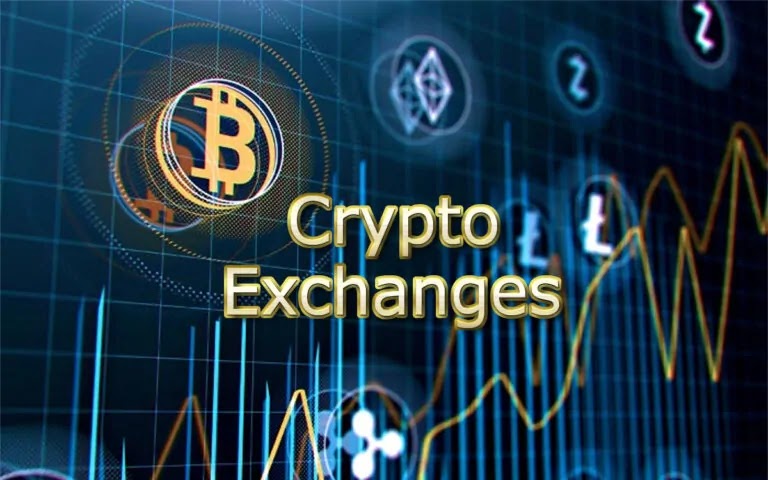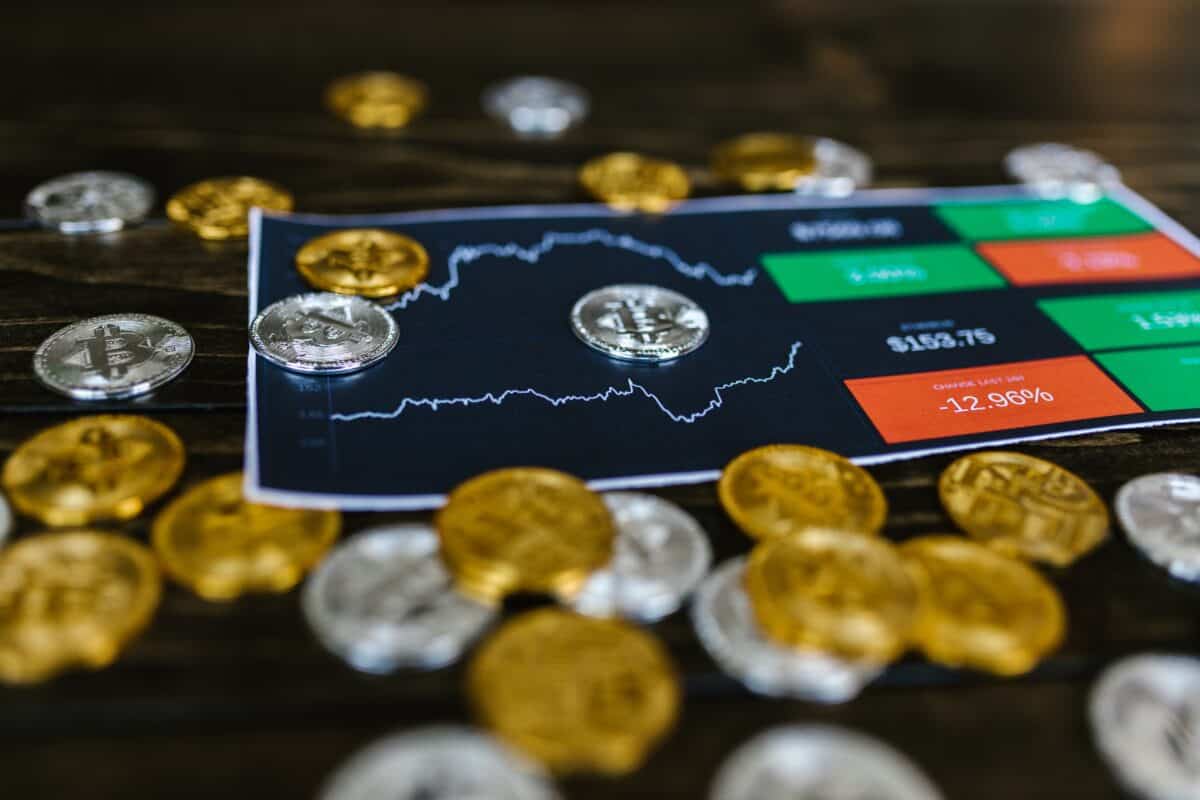How to choose a crypto exchange isn’t a simple decision. It’s about keeping your coins safe and your mind at ease. You’ll want an exchange that’s a fortress, not a cardboard fort. Can it fend off virtual robbers? Do they follow the rules? What’s more, you should sniff out the fees that could eat your wallet alive. Can you afford their bite? And here’s the kicker: if it’s harder to use than a space shuttle control panel, it’s a no-go. You need a smooth ride, not a rocket science degree. Then, does it let you trade what you want? Some are like diners with only two items on the menu. Here, you’ll get the lay of the land, straight from a crypto savant. Let’s dive in and get you set up on a platform that won’t let you down.
Assessing Security and Safety on Crypto Exchanges
Evaluating Security Protocols and Safety Measures
When you pick a crypto exchange, think of it like picking a bank. You want your money to be safe! To do this, you need to check the exchange’s safety measures. A key feature is two-factor authentication (2FA). It adds an extra step to your login process. It might seem like a pain, but it helps keep your account safe from hackers.
Also, ask how the exchange keeps your money. Do they use cold storage? This means keeping the currency offline where it’s safer. This is like having a safe for your most prized stuff, away from sticky fingers.
Can you reach out to customer support fast if there’s trouble? Good service can make a big deal when you need help. You want someone to hear you loud and clear, and quickly.
Reviewing Exchange History and Regulatory Compliance
Every exchange has a story. Look up their history. Did hackers ever break in? If so, how did the exchange handle it? This will tell you about their strength and honesty. The best ones learned from past mistakes and got better safeguards.
Check if the exchange follows the law too. This is about more than just playing by the rules. It’s about keeping your investment on solid ground. They should do what’s right when no one’s watching. This includes KYC policies. These are checks the exchange does to know who’s using their service. It’s like the bouncer checking ID’s before letting you into a club.
You also want to know if the exchange has insurance. Some exchanges have an insurance fund to cover losses if something goes wrong. This can give you peace of mind, like having a safety net when trying a high-wire act.
Through a careful eye and smart questions, you can choose a secure crypto exchange. Pick one that goes above and beyond to protect your digital gold. Then, you can trade with ease, knowing you’ve done your part to keep your money safe.
Understanding Fees and Financials
Breaking Down Fee Structures on Different Platforms
When looking at cryptocurrency exchanges, don’t let fees surprise you. Every platform has them. They take a slice from your trades. But how much? It varies. Some exchanges charge for trades. Others take a cut when you move your money in or out. And watch for hidden fees in the exchange rate. Before you sign up, understand all the costs.
Pick your platform wisely. High fees can eat into your profits. Look for transparency in pricing. Can’t find clear info? That’s a red flag. Aim for a balance: reasonable fees and the services you need.
The Importance of Liquidity and Insurance Funds in Crypto Trading
Now, let’s talk cash flow. Liquidity means how fast you can buy or sell without affecting the price. High liquidity equals quick trades and more stable prices. It’s a big deal for active traders.
Then there’s safety. Some exchanges have insurance funds. These protect your money if things go bad. Say the platform gets hacked. Insurance can be a lifesaver. Not all places offer this, so check first.
Knowing about fees and financial setups helps you trade smart. The best cryptocurrency platforms blend low fees with great service. And when big money’s on the line, features like liquidity and insurance show what’s worth your trust. Choose a crypto broker with these in mind, and your trading journey will be much smoother.
Navigating the User Experience
The Significance of a User-Friendly Interface Design
When picking the best cryptocurrency platforms, look for a rock-solid, user-friendly crypto interface. A clean layout and easy navigation mean fewer headaches and less time wasted. Complex charts are great for pros but can scare off newcomers. A good balance is key. The best platforms blend simple design with powerful tools.
Simplicity helps users make quick, effective moves. For example, buying and selling should be clear and straightforward. No one likes hunting for the right buttons or guessing what they do. Seek out platforms with helpful tutorials. They show the company cares about your experience from the start.
Remember, in secure crypto trading, less confusion means fewer mistakes. This is vital when handling real money. So, take your time. Play around with the demo or explore the help section. Good design shows. It’s smooth, fast, and lets you focus on trading, not on how to use the site.
Comparing Account Verification and Customer Support Services
Choosing a crypto exchange means diving deep into their account verification process. It’s how you stay safe. A great platform will guide you step by step, keeping it as pain-free as possible. They ask for standard ID proof, like a driver’s license or passport. Be ready for a selfie too! It proves you are who you say.
Top-notch customer support is the backbone of reputable crypto exchanges. Issues will crop up. Have faith that help is easy to find and quick to fix problems. Look for 24/7 support through chat, phone, or email. How fast they answer speaks volumes about their service quality.
Some platforms have community forums where you can get tips from other users. These places can be gold mines for help. They show if the platform has an active, helpful user base. It’s like having a trading family at your fingertips.
Now, lower fees in crypto platforms don’t always mean better. But no one wants to overpay for trades. Check fee info upfront. How do they charge for different actions like deposits, trades, or withdrawals? Be sure it fits your trading style.
In the end, it’s all about how comfortably you can move in the space. Can you find your way easily? Is the info clear? Do you feel secure? These shape your trading days. So, pick a place where you’ll love to log in daily. That’s your goal in selecting a crypto broker.
Keep all these points in mind while looking at the user experience. It can make or break your trading journey. Now go out there and find the right fit. Happy trading!
Analyzing Exchange Functionalities and Cryptocurrency Support
Exchange Trading Pair Availability and Supported Cryptocurrencies
When you start in crypto, it’s key to check exchange trading pair availability. This means what currency pairs you can trade. For example, can you swap Bitcoin for Ether? Look for this before choosing a platform.
Platforms should also support a variety of digital currencies. More options let you diversify your investments. Check the list of supported cryptocurrencies on an exchange. It should be easy to find on their site.
Decentralized vs. Centralized Platforms and Fiat Conversion Options
You must pick between decentralized and centralized exchanges. Decentralized ones let you trade directly with others. They offer more privacy but can be less user-friendly and lack support.
Centralized platforms, on the other hand, are like traditional banks. They are often easier to use and offer more services. Think safety nets like customer support.
Now, what about turning your cash into crypto? This is fiat to crypto conversion. Most centralized exchanges offer this. Check for this option and what currencies they accept.
Decide what you need. Is it advanced tools or simple buying and selling? Your answer will lead you to the right exchange.
Lastly, remember speed matters. Faster transactions mean buying or selling at prices you expect. Compare crypto transaction speeds; some are fast, some are slow.
Also, check how you get your money out. The crypto withdrawal process should be straightforward. The best platforms explain their withdrawal methods clearly. Look for this info before you sign up.
Remember, fees in crypto platforms vary. So, read about them carefully. Find out if the fees change based on how much you trade.
Look for safety measures on exchanges, too. These include two-factor authentication and insurance funds. They help keep your money safe.
An account verification process is also standard. It’s there to protect you from fraud. Know that this step can take some time.
When selecting a crypto broker, or any platform, learning is key. Know their rules and services. Use what you learn to make a choice that’s right for you.
You want a platform with good crypto exchange liquidity. This makes trading easier. It means selling when you want, without price drops because you’re selling.
Look for reputable crypto exchanges. Reviews and ratings can tell you which ones are the best. But also do your own digging.
Crypto customer support quality is important, too. If you run into issues, good support can be a lifesaver.
Lastly, if you’re a pro trader, you might want margin trading or staking options. Not all exchanges offer these, so confirm if they do.
Picking the right exchange feels big, but it doesn’t have to be hard. Break it down into steps. Look at what currencies you can trade, check the safety and fees, and you’ll find the best fit for you. Choose wisely, friends, and happy trading!
In this post, we looked at crypto exchanges from every angle. Security is key, so we dug into how exchanges hold up in safety measures and compliance. Remember to check an exchange’s history before you dive in.
We also unpacked fees and financials. Not all fee structures are equal, and knowing them can save you cash. Plus, it’s smart to choose platforms with solid liquidity and backup funds.
User experience matters a lot, too. A good interface can make trading easy. Strong customer support and simple account processes are golden.
Finally, we explored the nuts and bolts of trading. From available cryptocurrencies to choosing between decentralized and centralized platforms, knowing your options helps you trade smarter.
So, stay sharp when picking a crypto exchange. Prioritize security, understand the fees, demand a smooth user experience, and pick the platform that fits your trading style and needs. Happy trading!
Q&A :
What should I consider when selecting a cryptocurrency exchange?
When choosing a cryptocurrency exchange, it’s crucial to consider factors like security measures, user experience, supported cryptocurrencies, fees, liquidity, and customer support. This not only ensures a safer trading environment but also enhances your overall experience while dealing with various digital assets.
How do fees impact my choice of a crypto exchange?
Exchange fees can significantly affect your trading profits, especially if you’re a frequent trader or dealing in large volumes. Different exchanges have varied fee structures including withdrawal fees, transaction fees, and spreads. Compare these carefully and consider how they align with your trading strategy and volume.
Is the security of a crypto exchange important?
Security is paramount when it comes to crypto exchanges. Look for exchanges with strong security features like two-factor authentication (2FA), cold storage options for funds, insurance against theft or hacks, and a clear record of security practices. This protects your investments from cyber threats and unauthorized access.
Can liquidity affect my trading on a cryptocurrency exchange?
Yes, liquidity is vital as it determines the ease with which you can buy or sell cryptocurrencies without affecting their market price. Highly liquid exchanges provide tight spreads and quick order fulfillment. This is especially important for larger traders or those looking to execute trades quickly.
How does the range of supported cryptocurrencies influence my exchange choice?
The variety of available cryptocurrencies is essential if you’re interested in trading beyond the major coins like Bitcoin and Ethereum. More extensive asset offerings provide you with the opportunity to diversify your portfolio and trade in altcoins that may have significant potential for growth.





